This blog was written by Sightsavers and published on the Sightsavers website in December 2020.
In Sierra Leone, children with disabilities are often left behind and considered not worth educating. For girls, the discrimination can be two-fold.
Girls with disabilities often struggle to get to schools that are far from their homes. At school, they often face a lack of accessible toilets and hygiene assistance, while special devices and services are often given to boys first.
As part of the Education for All project, Sightsavers has worked with 45 schools across the country, to ensure more than 800 girls and boys with disabilities can gain an education.
To ensure our work was as effective as possible, we trained teachers and parents of children with disabilities as community researchers to interview children with disabilities, and those in a similar situation, to identify the barriers that were preventing them from accessing an inclusive, quality education.
Here’s what they told us at the start of the project
“The other children always mock her, sometimes seriously. They ask her to not sit by them, because they believe that they will also be afflicted by the same problem. When she gets home, she cries and doesn’t want to go back.” Tenneh*, mother of a child with disabilities
“I want to be somebody. With education I have a brighter future.” Ibrahim*, male student with disabilities
“Some people believe that these children have nothing to offer. They think they should be excluded from schooling activities because, at the end of the day, they can’t achieve anything.” Aminata*, mother of a child with disabilities
“Sometimes disabled children feel isolated when their colleagues run away from them, due to their physical appearance or their situation. Some children reject their colleagues.” Abdul*, teacher
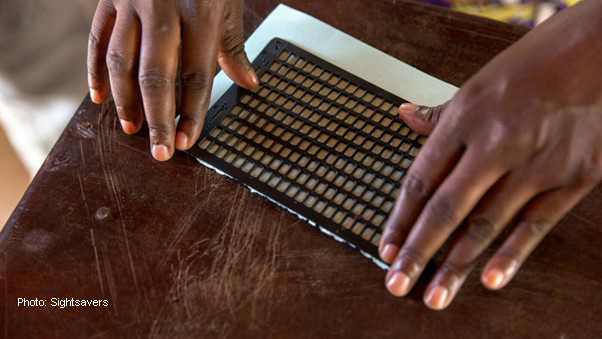
“We are not taught how to teach these kids. We need intensive training. We also need school materials.” Edward*, teacher
“I cannot walk well, and people laugh at me because of my physical problem.” Fatou*, female student with disabilities
“They need accessible toilets. The children find it hard to use the toilets the [non-disabled] children are using.” Michael*, father of a child with disabilities
Here’s what they told us towards the end of the project
“There is now a great sense of motivation among the disabled children. They believe that disability is not inability.” Doris*, teacher
“The coming of this project has made our children feel like they belong and [they] have seen themselves as humans. In previous years they have not been treated as if they are humans, so [that] alone is a development.” Marai*, mother of a child with disabilities
“At first, disabled children were seen as a lost cause and were discouraged, but through the intervention of this organisation the parents have got hope and have realised that their children can be successful. Disability does not mean the children cannot be successful.” Musa*, teacher
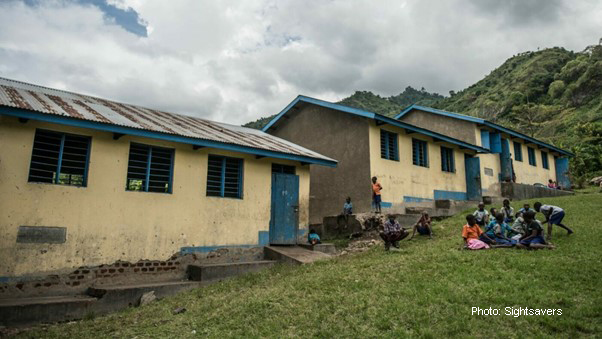
“We can now identify disabled children and we can now deliver lessons with them in mind.” Sahr*, teacher
“We have seen massive changes in our children. Before this time they were reluctant to go to school, but the inception of the project has made them willing, and for me that is a very big change.” Mariama*, mother of a child with disabilities.
“I like to be in school because every day I learn more things and it will help me in the future.” Joseph*, male student with disabilities
“I like coming to school and making friends. The encouragement I receive from teachers and fellow students is why I like coming to school.” Hassanatou*, male student with disabilities
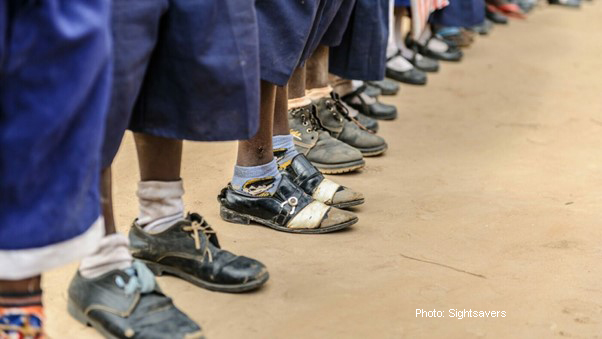
“Now our classmates mingle with us. They will play with us and we are glad because of that.” Lucee*, female student with disabilities
How our work made a difference
Through the Education for All project, Sightsavers and partners took practical steps, such as training teachers and physically adapting schools to make them more accessible. We also sought to change attitudes in the country – something that turned out to have a positive effect.
At the beginning of the project, participants noted that children with disabilities were often seen as a lost cause and were actively discouraged from attending school. By the end of the programme, all participants described children being treated with more kindness, understanding and respect.
We took steps to ensure that girls with disabilities could access an education. This included setting up a gender action plan that was carried out by teachers and members of local mothers’ clubs. We also distributed hygiene kits containing sanitary pads, soaps, toothpaste, brush, towels, and antiperspirants, designed to help remove barriers for girls to attend school during menstruation.
The project was a huge success. It showed that, through a mixture of practical support and advocacy, children with disabilities can gain a much brighter future.
Sightsavers’ inclusive education initiatives in Sierra Leone have been funded by Irish Aid, the European Commission and the UK’s People’s Postcode Lottery.
Explore the full research report on the impact of the Education for All project in Bombali District, Sierra Leone, or read a short summary of this research.
*All names have been changed

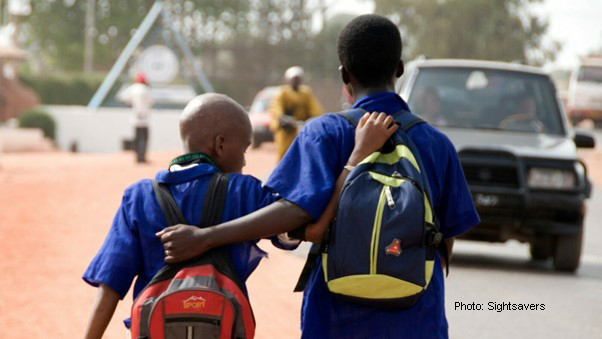

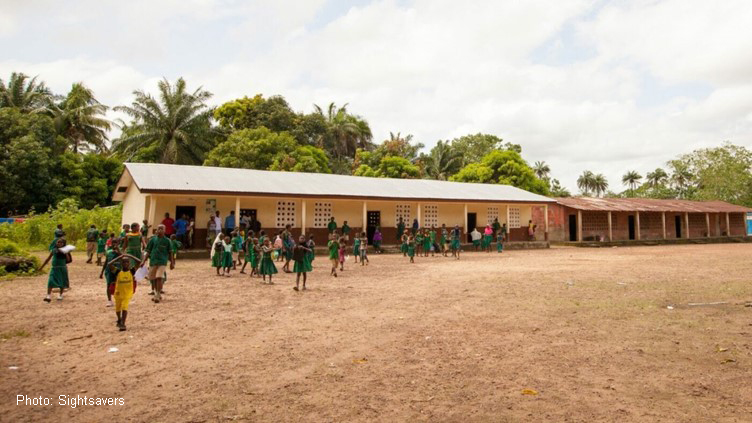
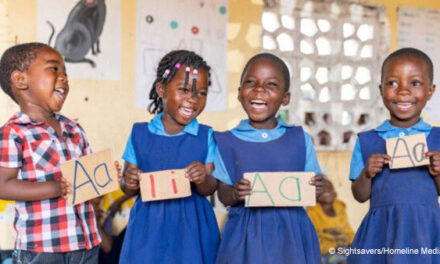
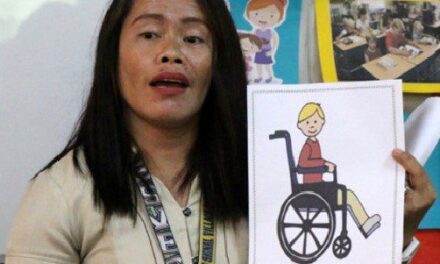
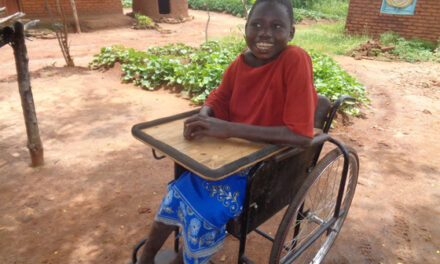
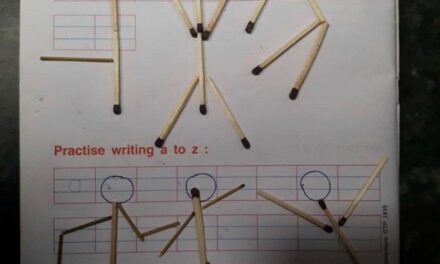
It was indeed a good read. It was quite heart rending the situations the children with disabilities faced especially the girls. The zig savers and organizations worked swiftly with the implementation of programmed of inclusive education. I have to read it again and again. Thank an for this.
I ENJOED THIS ONLIN COURSE . I THOUGHT IT WAS WELL PLAN AND LAYED OUT . OVERALL I GAINED SOME KNOWLEDGE NOW DEAL WITH CHILREN WITH DISABILITIES.
This blog, authored by Sightsavers and published on their website in December 2020, sheds light on the challenges faced by children with disabilities in Sierra Leone, particularly girls, in accessing education. It highlights the discrimination and barriers they encounter, such as lack of accessible facilities and social stigma.
The Education for All project implemented by Sightsavers aimed to address these issues by working with schools and communities to ensure inclusive education for children with disabilities. Through practical steps like teacher training and school adaptations, as well as advocacy efforts to change attitudes, the project made significant strides in creating a more inclusive environment.
The blog features quotes from various stakeholders, including parents, teachers, and students, illustrating the impact of the project. Initially, children with disabilities were marginalized and discouraged from attending school, but by the end of the program, there was a notable shift towards greater acceptance and respect.
Key interventions included setting up a gender action plan to support girls with disabilities, as well as providing hygiene kits to remove barriers related to menstruation. These efforts, supported by funding from organizations like Irish Aid and the European Commission, demonstrated that with the right support and advocacy, children with disabilities can indeed have a brighter future.
Overall, the blog highlights the transformative impact of inclusive education initiatives and underscores the importance of addressing barriers to education for all children, regardless of ability.
The children with disabilities have their wishes, desires and aspirations. They need to be listened to and facilitated to fulfill their vision as productive members of society
I strongly support the idea that children with disabilities have wishes, desires and aspirations. Therefore, teachers should support them to realize their aspirations. This is only possible in an environment where people have regard and positive attitude towards persons with disabilities.
This project made a real difference in the school life of these children with disabilities making them feel included
Reading this post is very heart warming but the greater good in most of the similar works of people living with disability is that parenting is very expensive because of the supportive aids needed to make life normal for the disabled. I want to see more support give to the local industries, universities and other organization in making this supportive aids with local materials with will go a long way for parent to embrace sending their kids to school or for the kids to have a normal life. Parents can also be trained in making some help aids for their kids where possible.
this is awesome helping the learners with disability gain self esteem and confidence in themselves and be able to access education is quite an achievement.
Quite a touching reading. How I wish this could be extended to other affected areas in the world so that we help our disabled girl child get educated
Give an equality life to someone with disabilities is great
Being a girl with disability this becomes an eye opener. Thank you sight savers for opening opportunities.
Awesome! Indeed projects like this can help students with disabilities be productive in life for our society.
Motivating writeup, thumbs up to such organization and their impactful work towards education as enshrined on SDG 4 and other goals. Keep the ball rolling
It is very interesting how the lifestyle and experience of students with disabilities can surely change drastically given the adequate support. there are always wiling people to contribute for the betterment of education in society. However, it is the school administration that does not make any effort to seek their support. the experience in this case the drastic change ended being very motivating and rewarding. Hopefully school communities can take and follow this example to provide inclusive and supportive assistance to school.
I will be happy to learn more
children with disability were created for us to gauge our humanity
In some community boys are given first, Imagine when the learner is a girl with a special need, the problem is two fold. disability should not be seen as inability.
Awesome project by sight savers ;we need many non governmental organizations and communities to start up this type of projects.Disability is not inability.There is great potential in them.They are many gifts and talents that are being wasted
A good project in deed, this will help most of us
This is a great project by sight savers, the difference that they are making is really making a big difference. Both girls and boys with disabilities end up enjoying going to school and the community is also warming up to the idea of supporting these (disabled) children receiving an education. Indeed being disabled does not mean inability.
both boys and girls with disabilities should be empowered through education, inclusivity being the way to go. Am thrilled by these organisations that are going through thick n thin to ensure the success of these, am glad to be part of these training and hope to be in a position where I will be able to be part of these projects by practically supporting it n seeing the fruits of our advocacy.
I like this project, and I wish this project could be implemented in most of our schools around Africa.
I like that these positive actions are made known to teachers for example who can learn and adapt to their school to help not only students with disabilities but any student with special needs and any other student with financial need.
I will definitely suggest to my school administrator and counselor on the hygiene kit!
At my school both males and females equally have access to a device since 3 years ago for the pandemic when we started to have classes on line from home!
Inclusive school is the best thing that happened to our children, it builds up their confidence, social interaction, relationships, learning skills and how to appreciate one another.
Seems like a great project. I have done a bit of research on girls with disabilities in Namibia and found that they are more likely to be deterred from attending school than boys by being mocked and not receiving protection from teachers. Unfortunately, I have not published this work yet.